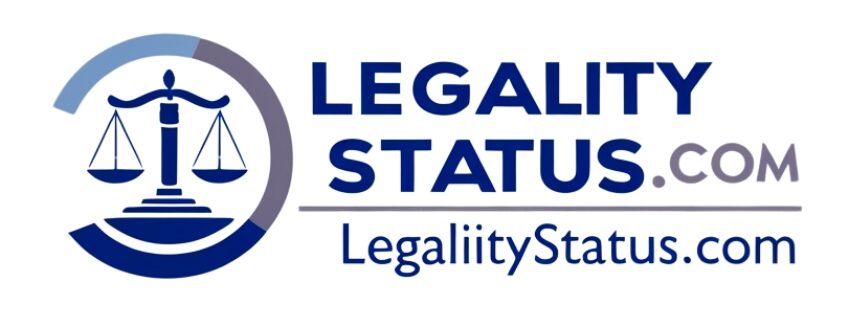is watching beastly illegal in us? A Comprehensive Guide
Watching beastly content, also known as bestiality or zoophilia, is a complex legal issue in the United States. While the act of bestiality itself is illegal in most states, the legality of viewing such content varies. This article explores the current laws, potential consequences, and ethical considerations surrounding this sensitive topic.
Introduction
The internet has made access to all kinds of content easier than ever before, including material that may be illegal or morally questionable. One such area is bestiality content, which raises legal and ethical concerns. If you’ve ever wondered about the legality of watching beastly videos in the US, you’re not alone. This comprehensive guide will address the key aspects of this issue.
Bestiality is generally illegal across the United States, but the laws regarding viewing such content are less clear-cut. While federal law prohibits the production and distribution of bestiality content, the act of watching it isn’t explicitly addressed in many jurisdictions. This legal gray area can lead to confusion and potential legal risks for individuals who encounter or seek out such material.
Defining Bestiality and Related Terms
What is bestiality?
Bestiality refers to sexual acts between humans and animals. It’s important to note that this behavior is considered a form of animal abuse, as animals cannot provide informed consent to sexual activities with humans.
Legal terminology: zoophilia, animal sexual abuse
While “bestiality” is the most common term used in legal contexts, you may also encounter related terms:
- Zoophilia: A paraphilia involving sexual attraction to animals
- Animal sexual abuse: A term emphasizing the abusive nature of sexual acts with animals
Understanding these terms is crucial when navigating the legal landscape surrounding this issue.
Historical Context of Bestiality Laws in the US
Early colonial laws
Bestiality has been prohibited in the United States since colonial times. Early laws were often based on religious morality and were typically severe, sometimes even carrying the death penalty.
Evolution of legislation over time
Over the centuries, laws regarding bestiality have evolved. While the act remains illegal in most states, penalties have generally become less severe. However, recent years have seen a trend towards stricter legislation, often motivated by animal welfare concerns and research linking animal abuse to other forms of violence.
Current Legal Status of Bestiality in the US
Federal laws on bestiality
At the federal level, there is no specific law prohibiting bestiality. However, the production and distribution of bestiality content are illegal under federal obscenity laws.
State-by-state breakdown of bestiality laws
As of 2024, 48 out of 50 states have laws explicitly prohibiting bestiality. The specifics of these laws vary:
- 25 states classify bestiality as a felony
- 23 states treat it as a misdemeanor
- Some states have felony enhancements for specific circumstances, such as involving minors or repeat offenses
New Mexico and West Virginia are the only states without specific laws against bestiality, although other animal cruelty laws may apply.
Recent legislative changes
In recent years, several states have updated their laws to address bestiality more comprehensively. For example:
- California amended its law in 2019 to specifically criminalize “sexual contact with animals”
- Hawaii passed its first bestiality law in 2021, titled “sexual assault of an animal”
These changes reflect growing awareness of the issue and its potential links to other forms of abuse.
Is Watching Bestiality Content Illegal?
Federal laws on viewing bestiality content
Federal law does not explicitly criminalize the act of watching bestiality content. However, downloading or possessing such material could potentially be prosecuted under obscenity laws.
State laws on viewing bestiality content
Most state laws focus on the act of bestiality itself rather than viewing content. However, some states have begun to address the issue of bestiality pornography specifically:
- Oregon’s law, for example, prohibits “sexual assault of an animal or animal carcass”
- New Jersey’s statute includes language about “sexual contact” with animals
Gray areas and legal ambiguities
The legality of watching bestiality content remains a gray area in many jurisdictions. While it’s generally not explicitly illegal to view such material, there are several factors to consider:
- Possession: Downloading bestiality content could be considered possession of obscene material, which is illegal in many states.
- Distribution: Sharing or redistributing bestiality content is illegal under federal law and in most states.
- Intent: Actively seeking out bestiality content could be seen as evidence of intent to commit bestiality, which is illegal in most states.
Legal Consequences of Watching Bestiality Content
Potential criminal charges
While simply viewing bestiality content online may not always result in criminal charges, related activities could lead to prosecution:
- Possession of obscene materials
- Distribution of obscene materials
- Animal cruelty (if there’s evidence of involvement in the production of such content)
Fines and penalties
Penalties for bestiality-related offenses vary widely depending on the jurisdiction and specific circumstances. They may include:
- Fines ranging from hundreds to thousands of dollars
- Probation
- Jail time (especially for felony convictions)
- Mandatory psychological evaluation or treatment
Long-term legal implications
A conviction related to bestiality can have serious long-term consequences:
- Criminal record affecting employment opportunities
- Restrictions on owning or working with animals
- Inclusion on sex offender registries in some jurisdictions
- Social stigma and damage to personal relationships
The Link Between Bestiality and Other Crimes
Research on the connection to interpersonal violence
Studies have suggested a potential link between bestiality and other forms of abuse or violence. This connection, often referred to as “The Link,” has been a driving force behind recent legislative efforts.
Key findings include:
- Individuals who engage in bestiality may be more likely to commit other sexual offenses
- There’s a potential correlation between animal sexual abuse and child sexual abuse
- Bestiality may be associated with other forms of animal cruelty
However, it’s important to note that this research is still developing, and not all individuals who view bestiality content will engage in other criminal behaviors.
Impact on animal welfare laws
The growing awareness of the potential link between bestiality and other forms of abuse has led to stricter animal welfare laws in many states. These laws often include:
- Higher penalties for bestiality offenses
- Mandatory psychological evaluations for offenders
- Provisions for the removal of animals from offenders’ homes
Ethical Considerations Surrounding Bestiality Content
Animal welfare concerns
The production of bestiality content inherently involves animal abuse. Animals cannot consent to sexual acts with humans, and such activities can cause physical and psychological harm to the animals involved.
Consent and exploitation issues
Beyond animal welfare, there are broader ethical concerns about consent and exploitation:
- Power imbalance between humans and animals
- Potential for coercion or force in the production of such content
- Exploitation of vulnerable individuals who may be involved in creating this material
The Role of Internet Service Providers and Content Platforms
Legal obligations of ISPs
Internet Service Providers (ISPs) in the US are generally not held liable for the content that passes through their networks. However, they are required to report any known instances of child exploitation material to the authorities.
While there’s no specific requirement for ISPs to monitor or report bestiality content, many do have policies against such material and may take action if it’s brought to their attention.
Content moderation policies
Major online platforms typically prohibit bestiality content in their terms of service. These policies often include:
- Automatic detection and removal of known bestiality content
- User reporting systems for flagging inappropriate material
- Cooperation with law enforcement when illegal content is identified
However, the effectiveness of these measures can vary, and some content may slip through the cracks.
Reporting Bestiality Content: What to Do
How to report illegal content
If you encounter bestiality content online, there are several steps you can take:
- Report it to the platform where you found it (e.g., social media sites, video hosting platforms)
- Contact the National Center for Missing and Exploited Children’s CyberTipline if you suspect the content involves minors
- Report to local law enforcement if you have reason to believe the abuse is ongoing or local to your area
Resources for seeking help
For individuals struggling with attraction to animals or those who have viewed bestiality content:
- Seek professional counseling or therapy
- Contact addiction support services if compulsive viewing is an issue
- Reach out to animal welfare organizations for education and support
Prevention and Education
Raising awareness about animal sexual abuse
Education is key to preventing animal sexual abuse and reducing the demand for bestiality content. Efforts in this area include:
- School programs on animal welfare and responsible pet ownership
- Public awareness campaigns about the illegality and harm of bestiality
- Training for veterinarians, animal control officers, and law enforcement to recognize signs of animal sexual abuse
Support for individuals with zoophilic interests
It’s important to provide support and resources for individuals who may be struggling with attraction to animals:
- Non-judgmental counseling services
- Support groups focused on managing paraphilic interests
- Education about the legal and ethical issues surrounding bestiality
The Bottom Lines
The legality of watching beastly content in the US is a complex issue with no simple answer. While the act of bestiality itself is illegal in most states, the laws regarding viewing such content are often less clear. However, it’s important to remember that even if viewing isn’t explicitly illegal in your jurisdiction, there are significant legal risks associated with possessing or distributing this material.
Moreover, ethical considerations should guide our actions beyond mere legality. The production of bestiality content inherently involves animal abuse and exploitation. By avoiding such material, we contribute to a safer, more ethical online environment and help protect vulnerable animals from harm.
If you’ve encountered bestiality content or are struggling with related issues, remember that help is available. Seek professional support, report illegal content to the appropriate authorities, and prioritize the welfare of animals and your own mental health.
FAQs About the Legality of Watching Bestiality in the US
Is it legal to watch animated bestiality content?
The legality of animated bestiality content is another gray area. While it doesn’t involve real animals, it may still be considered obscene material in some jurisdictions. It’s best to avoid such content to stay on the safe side of the law.
Can I be arrested for accidentally viewing bestiality content?
Accidental viewing is unlikely to result in arrest, but it’s important to immediately close and report any such content you encounter. Repeated viewing or downloading could be seen as intentional and may carry legal risks.
Are there any exceptions to bestiality laws for educational purposes?
Some states have exceptions for veterinary practices or animal husbandry. However, these exceptions typically don’t apply to viewing bestiality content, even if claimed to be for educational purposes.
How do bestiality laws differ internationally?
Laws regarding bestiality vary widely around the world. Some countries have explicit bans, while others may address it under broader animal cruelty laws. A few countries have no specific laws against bestiality.
What should I do if I suspect someone is engaging in bestiality?
If you suspect ongoing animal abuse, including bestiality, report it to local law enforcement or animal protection services. Provide as much detailed information as possible to help authorities investigate the situation.






